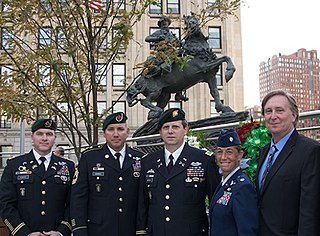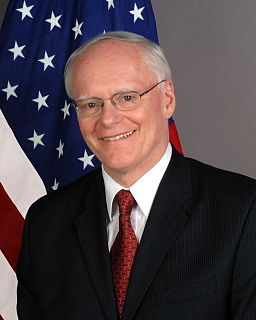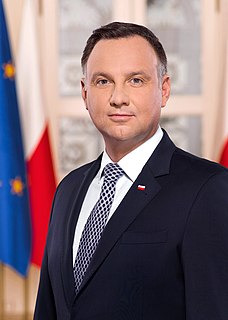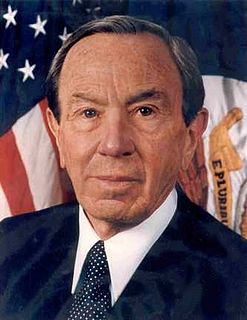A Quote by Jens Stoltenberg
I think it is a very important step in the right direction that the Afghans have taken over responsibility for the security in their own country, and NATO being able to end its combat presence in Afghanistan.
Related Quotes
What NATO troops are doing in Afghanistan is to train, assist and advise Afghans, but they are actually doing the fighting. They are actually taking the responsibility for the security in their own country. And that is a great achievement, compared to what we saw just a few years ago, when NATO troops had to conduct the combat operations fighting the Taliban.
Obviously it is right that the Afghans take responsibility for their own future in the end, but they need to know and feel that we are there as partners for them if they are prepared to make the necessary changes. But we should be in no doubt as to why we are in Afghanistan. We ended up there because terrorism hatched there erupted thousands of miles away in New York on Sept. 11.
One of their major initiatives was getting all officers on Facebook. So the question is, why are these people who are there to train the Afghans being pressured to be on Facebook? Again, it sounds benign until you realize that the military's concern isn't the Afghans, it's convincing the American people that we should be in Afghanistan.Soldiers can put up pictures and say "See how happy the Afghans are because of our presence here." It's a way to directly influence the American people using propaganda.
I believed Afghanistan was always going to be hard. It's the fifth poorest country in the world. And when you fly over it, you realize that there's not much there. And, of course, it has the problem, too, of being on that border with Pakistan in basically an ungoverned region that has given the terrorists a staging ground. So it's a very difficult place. But I do believe that the mission there can succeed if success is defined as helping the Afghans to prevent the Taliban from being an existential threat to the Afghan government.
The most important thing is to build local capacity, meaning train local forces, build the local defense institutions, defense ministries, command and control, because, in the long run, it is expected that local forces are stabilizing their own country, fighting terrorism themselves, instead of NATO deploying a large number of combat troops in combat operations.
I welcome the fact that Trump has clearly stated that NATO is not obsolete.And I think, also, that reflects that NATO is adapting. NATO is the most successful alliance in history because we have been able to change, to adapt when the world is changing. And now NATO is stepping up its effort in the global fight against terrorism, and we are responding to a more assertive Russia with an increase of our collective defense, with more presence in the eastern part of the alliance.
The problem right now, which I've been pointing out very bluntly to American officials in Washington, is that the U.S. has no economic presence in Afghanistan. The Afghans can't point and say, "Oh, the Americans built that road. They built that telecommunications facility. They built that electricity powerhouse," because nothing has been built so far.
The ongoing war in Afghanistan is being imposed on us, and Afghans are being sacrificed in it for someone else's interests. We are not blocking the interests of the United States or other major powers. But we are demanding that if you consider Afghanistan the place from which to advance your interests, then you should also pay attention to Afghanistan's interests.































